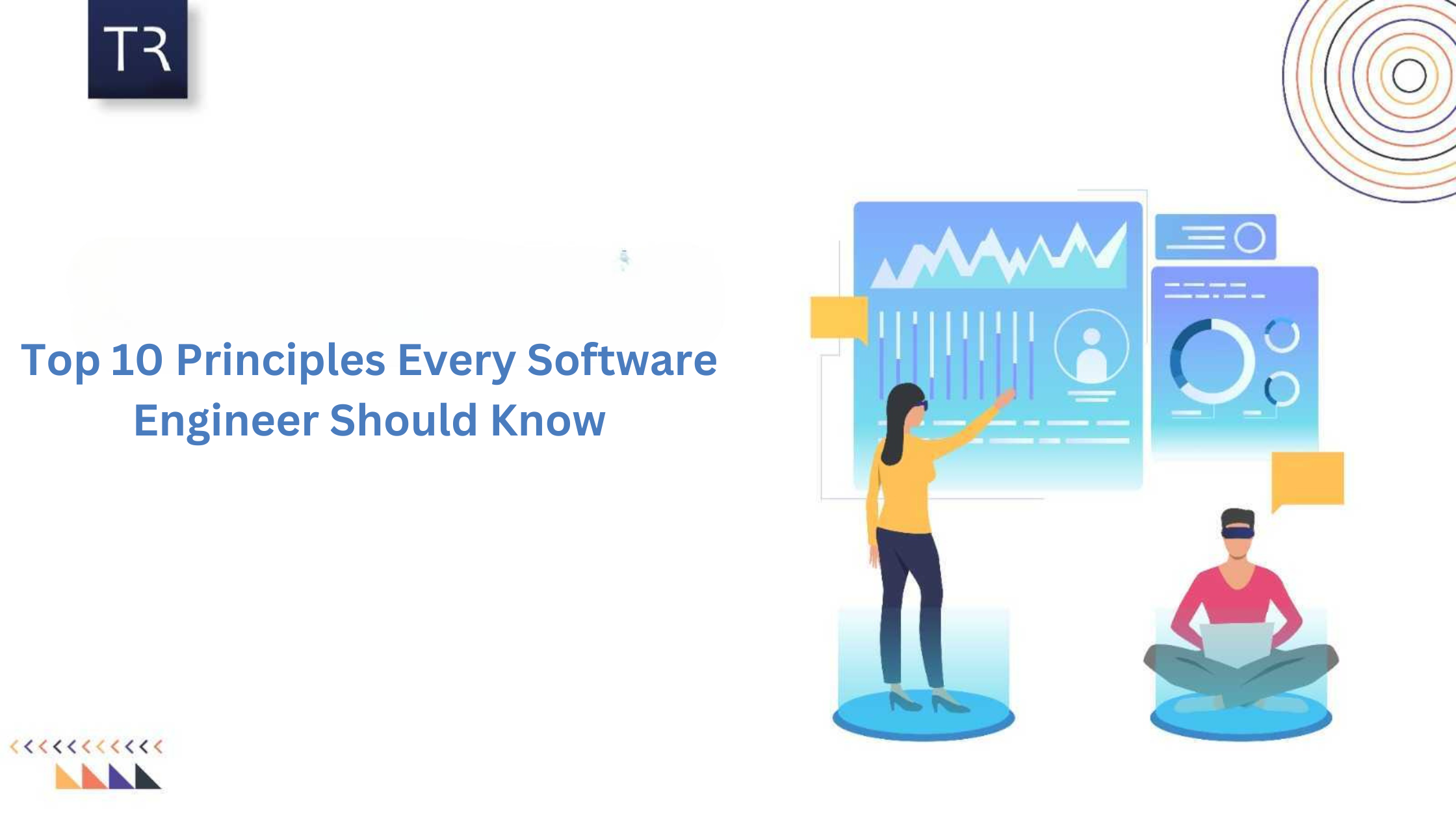Physical address:
573 Hutchinson Ln, Lewisville, TX 75077, USA.
Software engineering is more than writing code; it’s about crafting solutions that are efficient, scalable, and maintainable. To excel, engineers need a strong foundation in principles that ensure quality and reliability. Here are the top 10 principles every software engineer should know to succeed.
Principle 1: Clean Code Practices
This one of the most important in top 10 principles that a software engineer should know. Readable and maintainable code is a hallmark of great engineering. Clean code practices emphasize clarity, simplicity, and intent.
Key Components:
- Readable Naming Conventions: Use descriptive variable and function names.
- Commenting Wisely: Explain the “why,” not the “what.”
- Code Formatting: Follow consistent style guides.
Principle 2: DRY (Don’t Repeat Yourself)
The DRY principle focuses on reducing redundancy in code by ensuring that every piece of information has a single, unambiguous representation.
Why It Matters:
- Improves Maintainability: Changes are easier to implement when code isn’t duplicated.
- Reduces Errors: Fixing a bug in one place automatically fixes it everywhere.
Implementation Tips:
- Use functions and classes to encapsulate reusable logic.
- Rely on configuration files for repetitive values.
- Regularly refactor to eliminate duplication.
Principle 3: SOLID Principles
The SOLID principles are a cornerstone of object-oriented programming and software design. They guide developers in building systems that are scalable and easy to maintain.
Breakdown:
- Single Responsibility Principle (SRP): Each class or module should have one reason to change.
- Open/Closed Principle (OCP): Code should be open for extension but closed for modification.
- Liskov Substitution Principle (LSP): Subclasses should be substitutable for their base classes without altering behavior.
- Interface Segregation Principle (ISP): Avoid forcing classes to implement interfaces they don’t use.
- Dependency Inversion Principle (DIP): Depend on abstractions, not concrete implementations.
Principle 4: KISS (Keep It Simple, Stupid)
Simplicity is the ultimate sophistication in software development. The KISS principle emphasizes keeping solutions straightforward.
Advantages:
- Easier Debugging: Simple code is easier to debug and test.
- Faster Development: Reduces unnecessary complexity, speeding up implementation.
How to Apply:
- Break problems into smaller, manageable tasks.
- Avoid “gold plating” features that aren’t required.
Principle 5: YAGNI (You Aren’t Gonna Need It)
Engineers often try to future-proof code, but YAGNI warns against implementing features until they’re actually required.
Why YAGNI Works:
- Saves Time: Focus only on what’s immediately necessary.
- Reduces Complexity: Avoids overcomplicating the codebase.
Examples:
- Delay adding configurations for optional features.
- Avoid designing systems to handle edge cases that may never occur.
Related links you may find interesting
Principle 6: Understanding Algorithms and Data Structures
Strong knowledge of algorithms and data structures is crucial for efficient problem-solving in software engineering.
Key Areas:
- Sorting algorithms like QuickSort and MergeSort.
- Common data structures such as arrays, linked lists, trees, and hashmaps.
Practical Tips:
- Analyze the time and space complexity of your solutions.
- Practice using platforms like LeetCode or HackerRank.
Principle 7: Test-Driven Development (TDD)
Test-driven development emphasizes writing tests before the actual implementation.
Benefits:
- Improved Quality: Reduces bugs and ensures code reliability.
- Confidence in Changes: Easy to verify that new changes don’t break existing functionality.
How to Get Started:
- Write unit tests for each function.
- Automate testing using CI/CD pipelines.
Principle 8: Version Control Systems
Version control, especially Git, is essential for managing code changes in team environments.
Best Practices:
- Commit often with meaningful messages.
- Use branching strategies like Git Flow.
- Regularly merge changes to avoid conflicts.
Principle 9: Continuous Learning and Adaptation
The tech world evolves rapidly, making continuous learning a non-negotiable aspect of a software engineer’s career.
Strategies:
- Follow tech blogs and industry leaders.
- Experiment with new tools and frameworks in side projects.
Principle 10: Effective Communication Skills
Software development is a team effort, requiring strong communication skills.
Key Areas:
- Collaboration: Work effectively with cross-functional teams.
- Documentation: Create clear and concise project documentation.
- Presentations: Articulate ideas and solutions to stakeholders.
Conclusion
Adopting these principles can significantly enhance your skills as a software engineer. Remember, continuous learning and collaboration are key to thriving in this ever-evolving field. By implementing these top 10 principles software engineer can excel in his field.
FAQs About Software Engineering Principles
1. Why is clean code important?
Clean code ensures maintainability and reduces the time spent debugging.
2. What is the DRY principle?
DRY stands for “Don’t Repeat Yourself,” aiming to reduce code redundancy.
3. How do SOLID principles improve software design?
They make software easier to understand, maintain, and scale.
4. Is TDD worth the effort?
Yes, TDD minimizes bugs and ensures code reliability.
5. Which tools are essential for software engineers?
Popular tools include Git, Visual Studio Code, and Docker.
6. How can I stay updated as a software engineer?
Follow tech blogs, enroll in courses, and participate in coding challenges.


